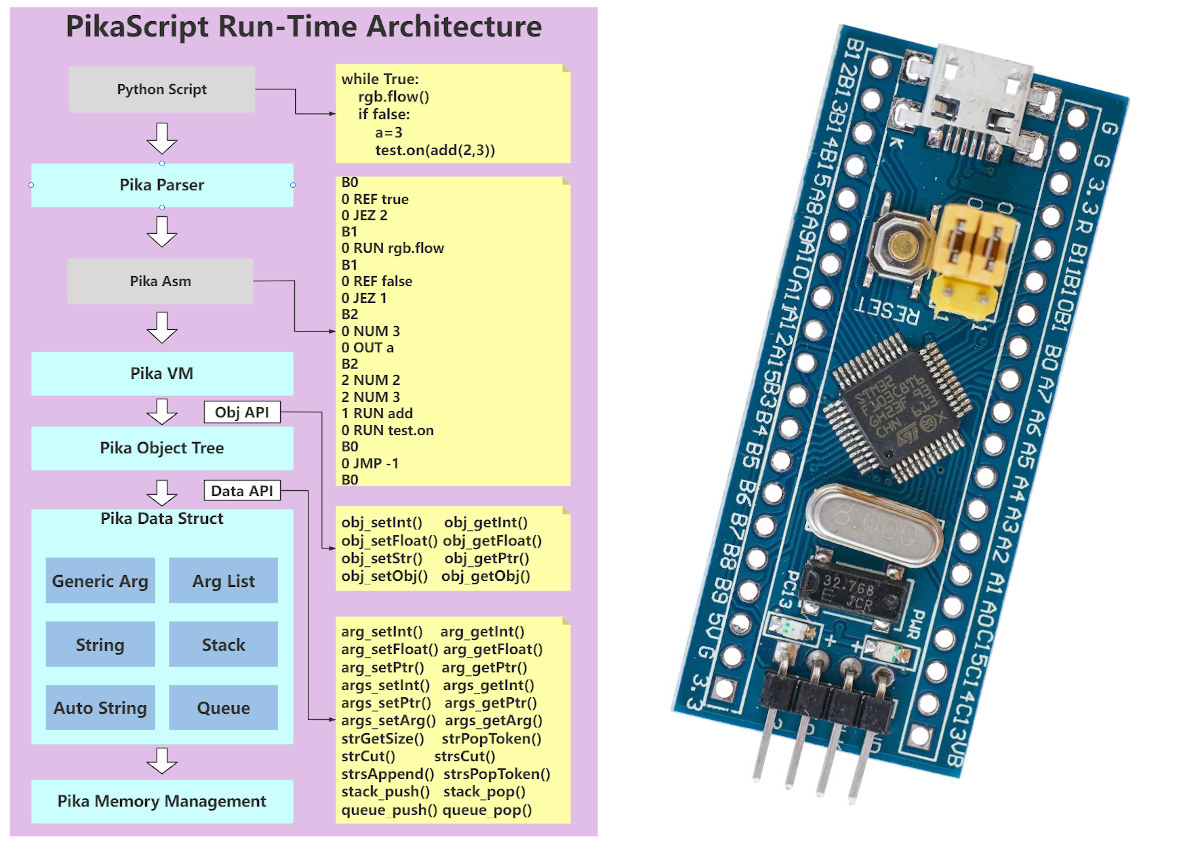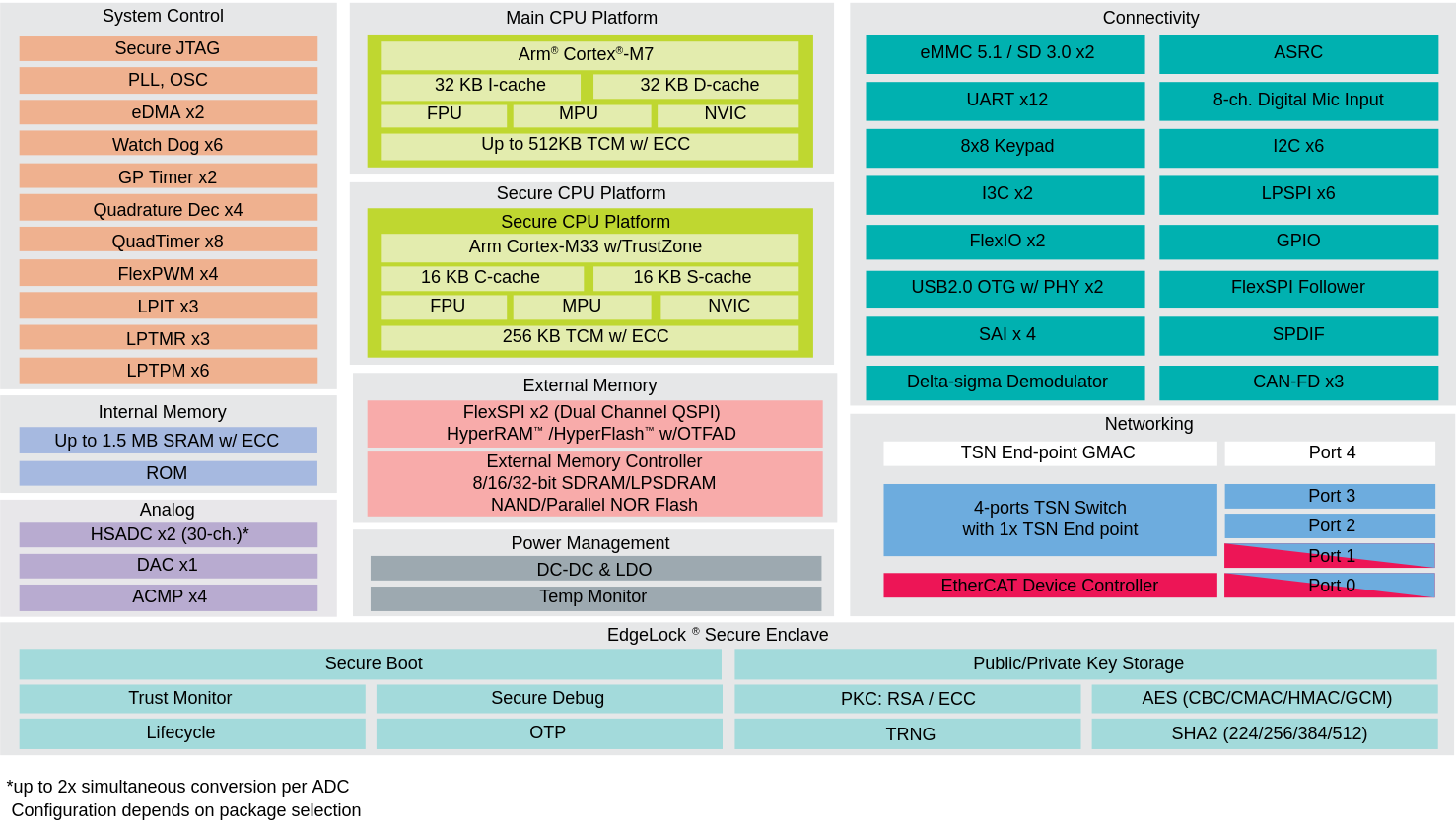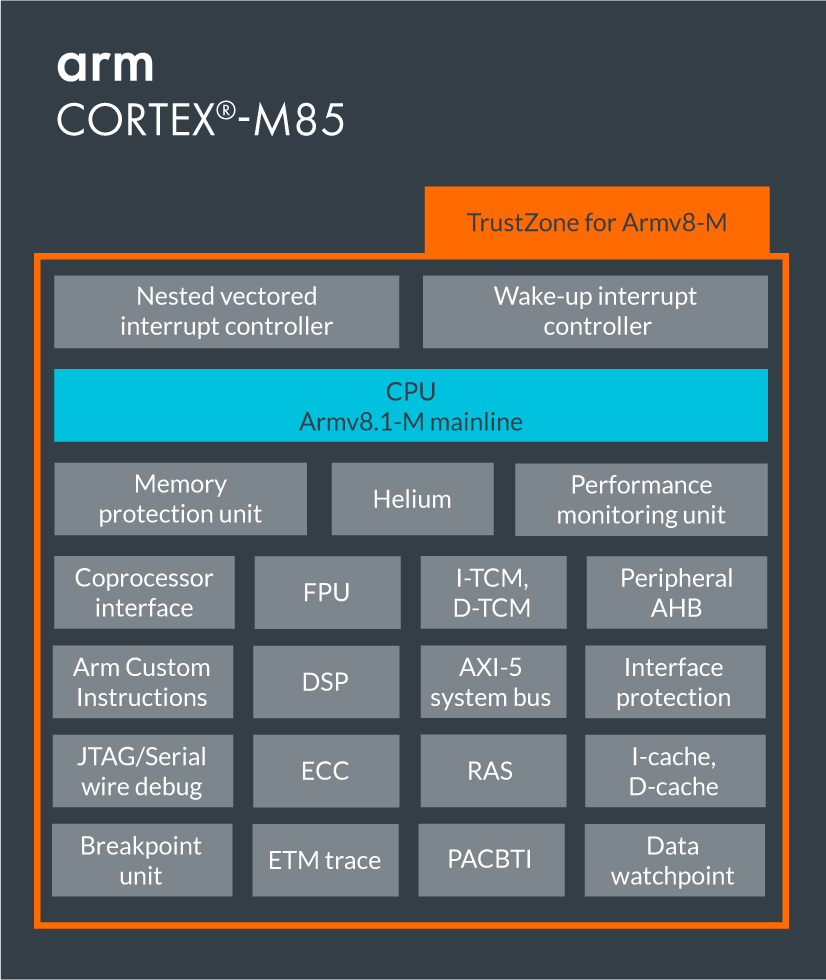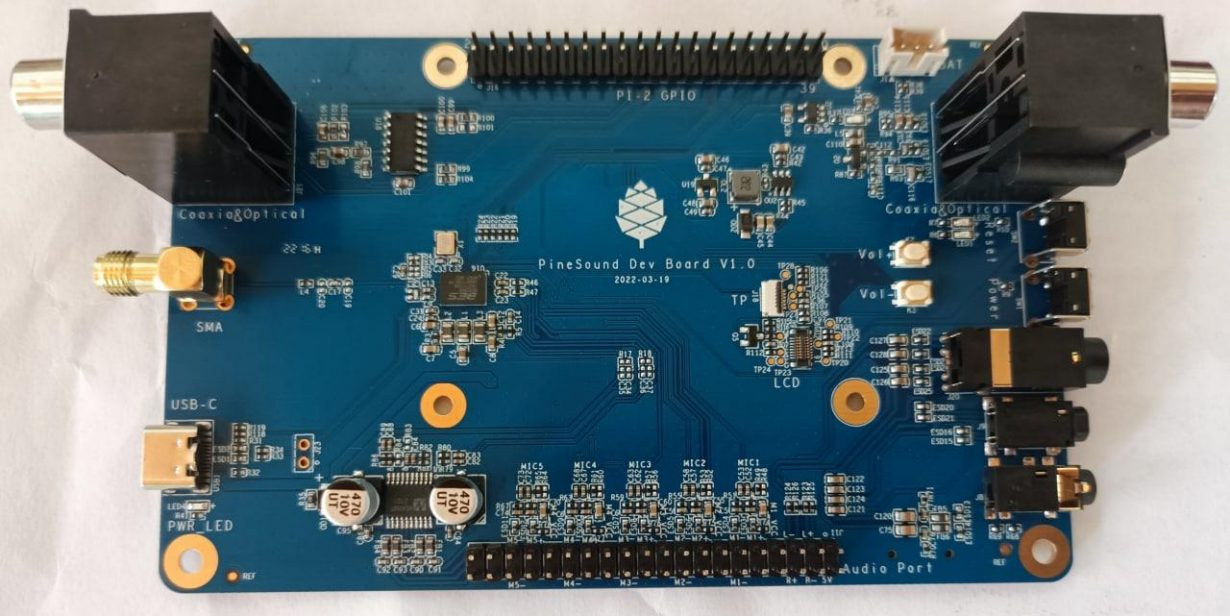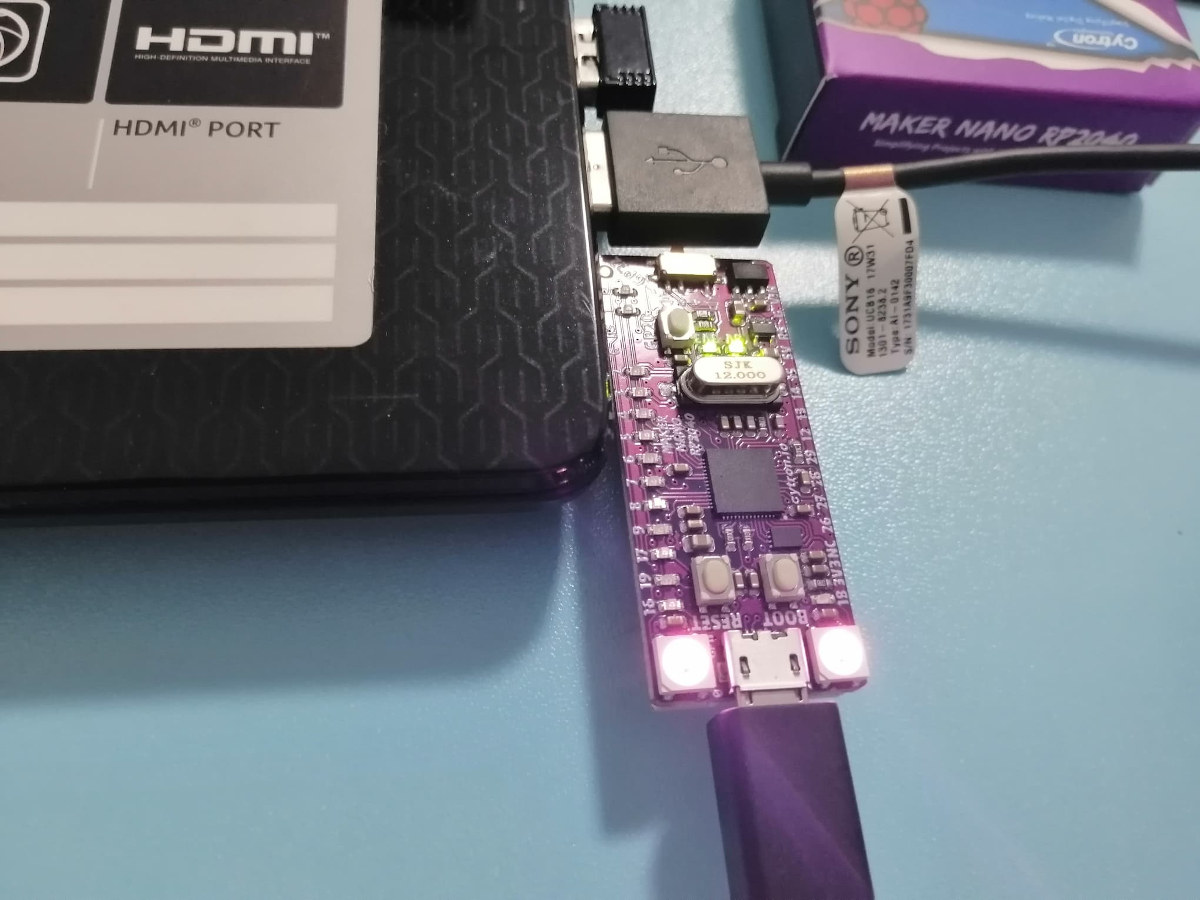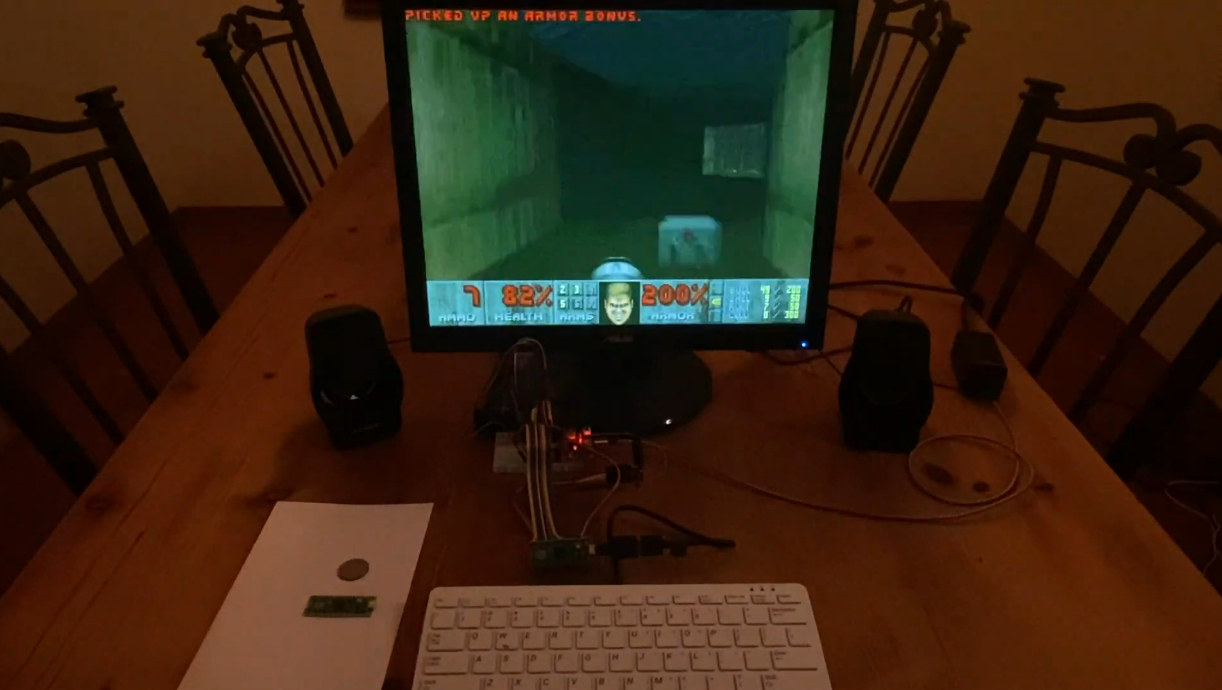PikaScript is an ultra-lightweight Python engine that can run on microcontrollers with as little as 4KB of RAM and 32KB of Flash, while the more popular MicroPython requires at least 256kB of code space and 16kB of RAM. PikaScript was initially developed to run on STM32G030C8 and STM32F103C8 MCUs, meaning, for example, it works on the BluePill board, but it has also been ported to other platforms like WCH CH582 RISC-V MCU, WinnerMicro W806 C-Sky microcontroller, as well as other like Raspberry Pi RP2040, ESP32-C3, etc… but those are not quite as well supported with some features missing. PikaScript also permits the binding C function to a Python module through Pika Pre-compiler. PikaScript can run bare metal on the microcontroller, but also supports real-time operating systems such as RT-Thread and VSF (Versaloon Software Framework), as well as Linux. Just like MicroPython, it’s using a subset of Python 3, but I’d […]
Embedded World 2022 – June 21-23 – Virtual Schedule
Embedded World 2020 was a lonely affair with many companies canceling attendance due to COVID-19, and Embedded World 2021 took place online only. But Embedded World is back to Nuremberg, Germany in 2022 albeit with the event moved from the traditional month of February to June 21-23. Embedded systems companies and those that service them will showcase their latest solution at their respective booths, and there will be a conference with talks and classes during the three-day event. The programme is up, so I made my own little Embedded World 2022 virtual schedule as there may be a few things to learn, even though I won’t be attending. Tuesday, June 21, 2022 10:00 – 13:00 – Rust, a Safe Language for Low-level Programming Rust is a relatively new language in the area of systems and low-level programming. Its main goals are performance, correctness, safety, and productivity. While still ~70% of […]
NXP i.MX RT1180 Cortex-M7/M33 crossover MCU integrates GbE TSN for industrial IoT communication
NXP i.MX RT1180 is the latest member of the company’s i.MX RT Series crossover MCUss with application processor-like performance. The 800 MHz dual-core Arm Cortex-M7/M33 microcontroller is specifically designed for industrial IoT communication with a Gigabit Ethernet port supporting time-sensitive networking (TSN). NXP also highlights that it is the first crossover MCU to include an EdgeLock secure enclave that “eases the complexity of implementing robust, system-wide security intelligence for industrial IoT applications”, and the new processor aims to bridge the gap between existing industrial systems and Industry 4.0 system. NXP i.MX RT1180 key features and specifications: CPUs – Arm Cortex-M7 @ 800 MHz + Arm Cortex-M33 @ 240 MHz (Optional: single-core Arm Cortex-M33) On-chip Memory – Up to 1.5 MB SRAM (ECC protected) with 512 KB of TCM for Cortex-M7 and 256 KB of TCM for Cortex-M33 Memory & Storage I/F – 2x FlexSPI for HyperRAM or HyperFlash 8/16/32-bit SDRAM/LPSDRAM […]
Arm Cortex-M85 is faster than Cortex-M7, offers higher ML performance than Cortex-M55
Arm has introduced a new MCU-class core with the Cortex-M85 core that offers higher integer performance than Cortex-M7, and higher machine learning performance compared to Cortex-M55 equipped with Helium instructions. The new Cortex-M85 core is designed for developers requiring increased performance for their Cortex-M powered products without going to Cortex-A cores, and instead, keeping important features such as determinism, short interrupt latencies, and advanced low-power management modes found in all Cortex-M cores. Arm Cortex-M85 key features and specifications: Architecture – Armv8.1-M Performance efficiency – 6.28 CoreMark/MHz and 3.13/4.52/8.76DMIPS/MHz (1. “ground rules” in the Dhrystone documentation, 2. inlining of functions, 3. simultaneous (”multi-file”) compilation). Bus interfaces AMBA 5 AXI 64-bit Main system bus (compatible with AXI4 IPs) AMBA 5 AHB 32-bit Peripheral bus AMBA 5 AHB 64-bit TCM Access bus (subordinate port) Pipeline – 7-stage (for main integer pipeline) Security Arm TrustZone technology PACBTI extension (Pointer Authentication, Branch Target Identification) helps […]
PineSound is a development board for earbuds and digital audio players
You may have read Pine64’s April’s Fools spoof about the PineBuds and PinePod earlier this month. It turns out those will be real, and the Pine64 PineSound development board will be used to bring the PineBuds earbuds and PinePod digital audio player to market. The PineSound board features Bestechnic BES2300 Bluetooth 5.0 audio chip, two coaxial & optical input and output, a 3.5mm headphone jack, 4.4mm and 2.5mm balanced jacks, an SMA connector, a USB Type-C connector, plus interfaces for a touchscreen display. PineSound preliminary specifications: WiSoC – Bestechnic BES2300-YP dual-core Arm Cortex-M4F @ up to 300 MHz with HW DSP instruction, 992KB SRAM, 4MB flash, Bluetooth 5.0 dual mode. Supports hybrid ANC (active noise cancellation) and TWS (true wireless stereo). Note: the datasheet has been made available in the comments section. Display – LCD (should be SPI) and touch panel connectors Audio Coaxial & optical input (left) Coaxial & […]
Getting started with Maker Nano RP2040 using CircuitPython: Blinky, RGB LED, and Piezo Buzzer
CNXSoft: This getting started guide was initially posted in Thai language by Suthinee Kerdkaew, and I’ve just translated her work into English with some minor edits. As discussed in an earlier article, Maker Nano RP2040 is a board following the Arduino Nano form factor, but with a more powerful Raspberry Pi RP2040 microcontroller. The board also comes with plenty of LEDs, as well as two RGB LEDs, and a piezo buzzer for audio output. Mr. Jean-Luc Aufranc has just given me a Maker Nano RP2040 board received from Cytron for review. I’ve never used a board before, so it’s my first experience, and in this article, I’ll try to program Maker Nano RP2040 with CircuitPython with three demos: a blinky sample, changing the color of the RGB LEDs, and playing a melody through the piezo buzzer. Let’s see if I can do it. Let’s get started. I first downloaded the […]
Avnet survey shows chip shortage impacts most designs, increases engineers workload
Avnet has just released a survey of global engineers asking them how they were coping with the global chip shortage, longer lead times, and the impact on product design. Note that most of the 530 respondents are from EMEA (56%), and the US (31%), while only 10% are in Asia, and 2% are in Japan (I understand Asia means ex-Japan here), so it may not perfectly reflect the global situation, but the results are interesting nonetheless. If times have been challenging for your company/project, know that you are not alone, and 98% percent of respondents have had troubles accessing parts, 93% has experienced longer lead times, 73% of the survey respondents say the chip shortage presents a significant challenge, and 64% are now selecting parts based on availability rather than preference. Microcontrollers are the most challenging part to get hold of (think STM32), which has led to an increase in […]
Doom ported to Raspberry Pi RP2040
Doom has been ported to all sorts of platforms, including ESP32 platforms with 4MB PSRAM but “RP2040 doom” port of Doom to the Raspberry Pi RP2040 is more challenging, since RAM is limited to the measly 264KB built-in into the microcontroller, and for boards with only 2MB flash like the Raspberry Pi Pico, storage capacity becomes an issue. But Graham Sanderson solved all those issues by compressing the data, changing the code to use less RAM, making full use of the two Arm Cortex-M0+ cores, both overclocked at 270 MHz, in order to run Doom (DOOM1.WAD) on Raspberry Pi Pico at 320×240 resolution @ 60 fps, and the full Ultimate Doom and DOOM II WADs expected to fit into Raspberry Pi RP2040 boards with 8MB SPI flash. The port was based on Chocolate Doom, OPL2 emulation for audio support was derived from the emu8950 project, and sound effects were compressed […]


